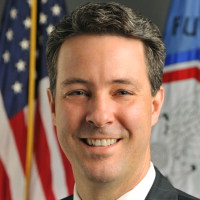CFTC’s O’Malia warns regulators to “Do No Harm”

O’Malia: if rules don’t work – fix them
Commissioner Scott O’Malia of the US Commodity and Futures Trading Commission has called for continuing international co-operation on market surveillance and warned that current oversight mechanisms are flawed in terms of the data they collect and the way that they analyse it.
In a keynote address to a meeting of US and European financial markets lawyers at the Federal Reserve Bank of New York this week. O’Malia reiterated and expanded on calls he made at a Swift Standards Forum event in London in March.
Comparing the role of market supervisors to doctors monitoring a patient, he said that the medical dictum of ‘First Do No Harm’ should be followed: “Where our rules have proven unworkable, it is incumbent upon us to fix them,” he said.
One area where harm to the system could be caused is in the collection of data in different formats internationally, increasing complexity and costs for supervised markets. “It is critically important that international regulators continue to work together to harmonise swap data reporting, exchange trading, and CCP clearing before market fragmentation and contraction of liquidity hardens and becomes permanent,” said O’Malia. “Comprehensive solutions to the negative impact on liquidity and market structure must be addressed through a holistic approach that focuses on international harmonisation through substituted compliance and mutual recognition of other jurisdictions. If systemic risk is a cancer of the global financial system, then the whole body must be treated to prevent its spread.”
He went on to say that an uncoordinated approach to clearing regulation would lead to greater systemic risk. The CFTC finished adopting the CPSS-IOSCO Principles for Financial Market Infrastructures that set out international standards for CCPs, he said, adding that this is a step towards an international harmonisation. “Because of the G20 commitment to CCP clearing for standardized contracts and the higher margin requirements for uncleared swaps under Basel III, CCPs have more recently expanded to serve multiple markets across national borders. The interest of traders in more efficient use of collateral reinforces this trend and adds to the impetus for a coordinated approach to CCP regulation,” he said.
“To that end, I hope that the European Commission will continue to work with the CFTC to find the US regulatory regime equivalent under the European Market Infrastructure Regulation so that the European Securities Market Authority may proceed with the recognition of US CCPs by the December deadline under the Capital Requirements Directive.”
The danger is that without recognition, third country CCPs will not qualify as Qualifying CCPs under the Basel III risk-weighting approach, which would make it cost-prohibitive for EU banks to clear through third country CCPs. US CCPs would not be able to maintain direct clearing member relationships with EU firms and would be ineligible to clear contracts subject to the EU clearing mandate next year.
“This outcome would be detrimental to both US and European interests,” he said.
But even if the legal frameworks are in place, there is another critical area of cross-border cooperation: data sharing and harmonisation.
“Both the US and EU should continue to engage in discussions to recognise each other’s swap trade repositories and develop a means to share the data, as well as collaborate to harmonize both the form and format of the data being reported,” he said. “The ability to compare and aggregate data across US swap data repositories and EU trade repositories is critical to the analysis and monitoring of threats to financial stability. Mutual recognition of SDRs and TRs would also eliminate the need for duplicative reporting.”
While this will simplify the process for market participants, regulators like the CFTC are still faced with masses of data, which will require investment in technology. “We all would like to find a silver bullet to prevent the next financial crisis. I believe that the closest we will get to that is through the application of technology to the massive amounts of data available,” he said.
The CFTC has a $52.6 million budget for technology investments for 2015, which O’Malia said would allow it to “begin making the necessary investments to keep up with technological innovation in today’s electronic and highly automated markets”. Previous restrictions on its budgets means that “inadequate support for technology has left the CFTC with diminished automated surveillance capacity and an inability to manage the regulatory data stored in SDRs”, he said.
The goal should be automated market surveillance, which will involve “serious technology investments”.
“The [CFTC] must also fund an order message data collection and analysis system, a key tool for surveillance,” he said. “Futures exchanges receive millions of order messages on a minute-by-minute basis, but according to CFTC staff, only 8% of all order messages result in completed trades. The CFTC receives transaction data on a daily basis and doesn’t collect roughly 90% of all market activity. It is crucial to perform market surveillance at the order message level to understand the behaviour of automated trading systems and identify possible violations.”
A further problem is that market abuse can happen across markets, which will also require inter-agency cooperation and further technology investment. O’Malia called for the deployment of cross-product and cross-market surveillance and analytical tools “in order to facilitate detection of improper market conduct and systemic risks”. This need has been recognised by the CFTC’s Technology Advisory Committee – which he chairs –as “vitally important to the oversight of today’s complex markets”.











































